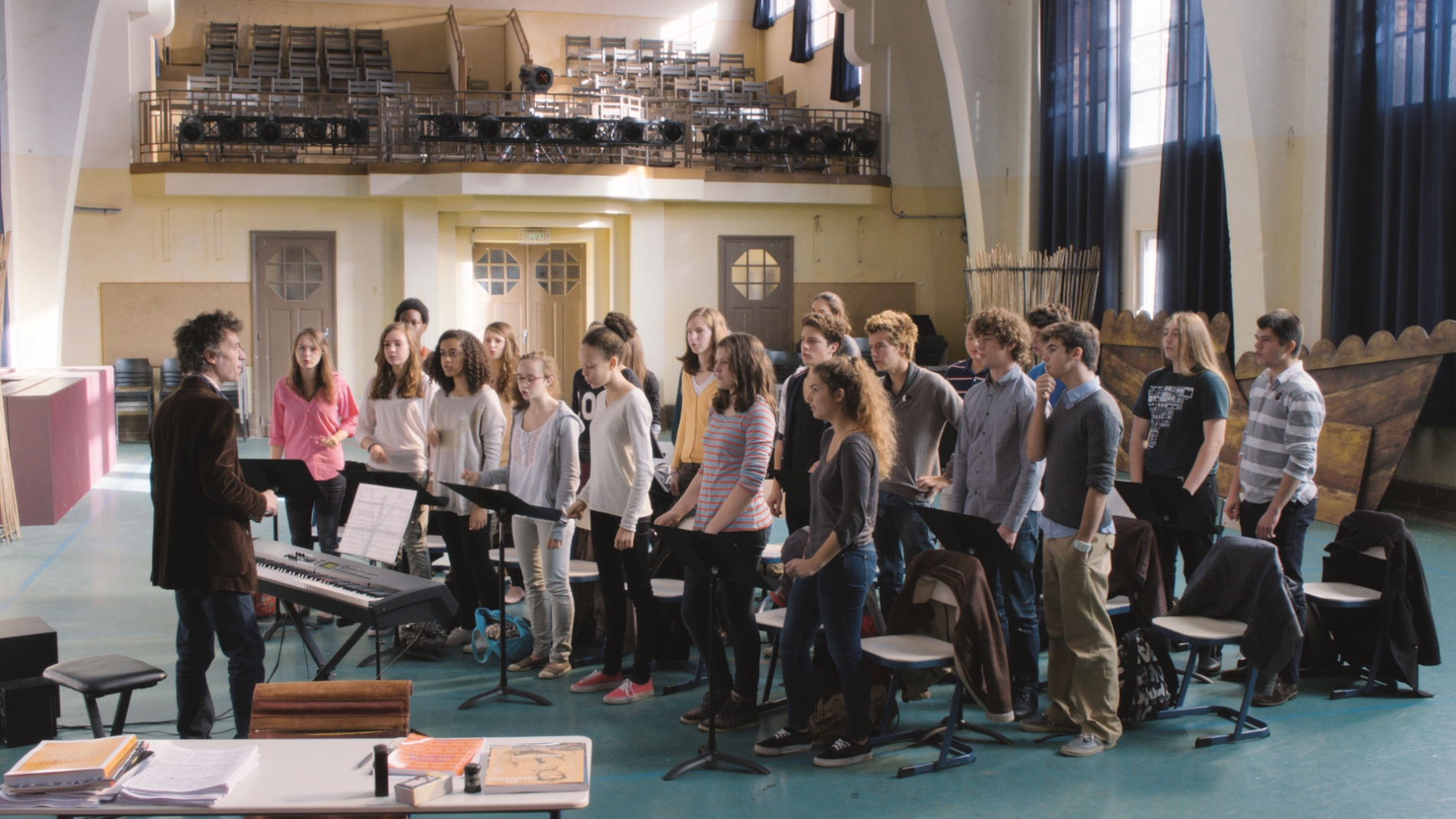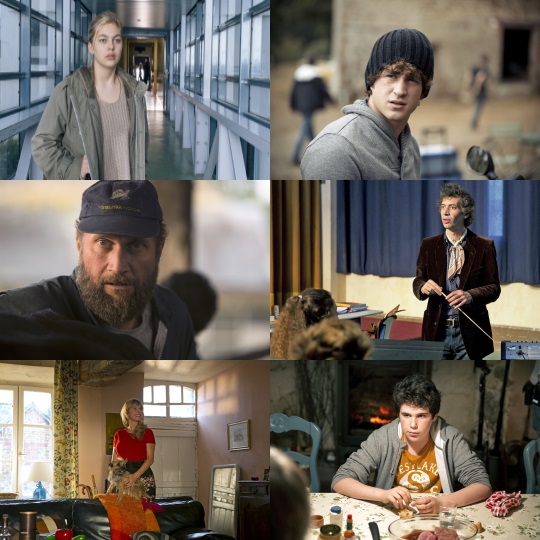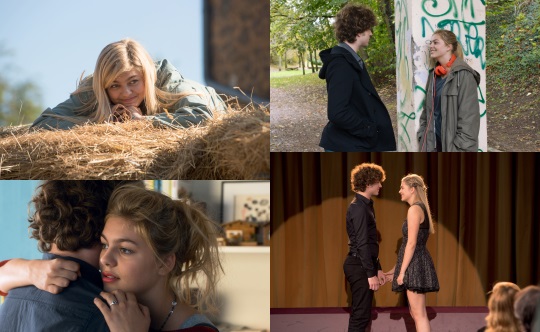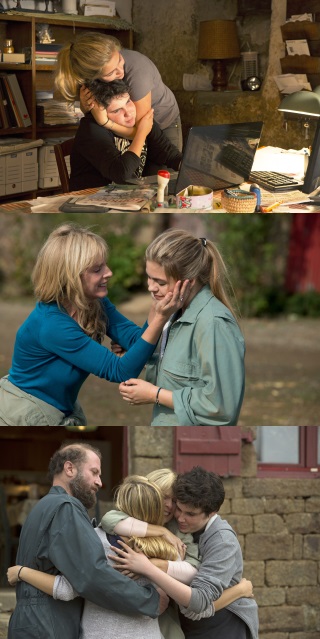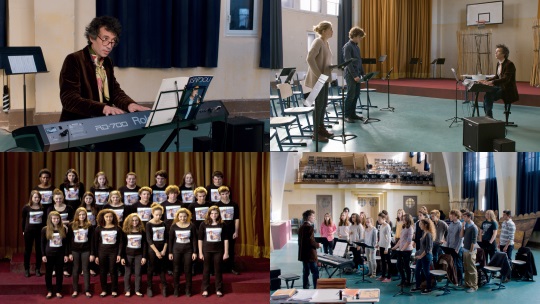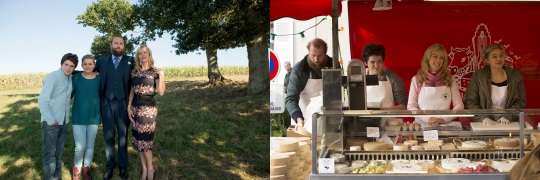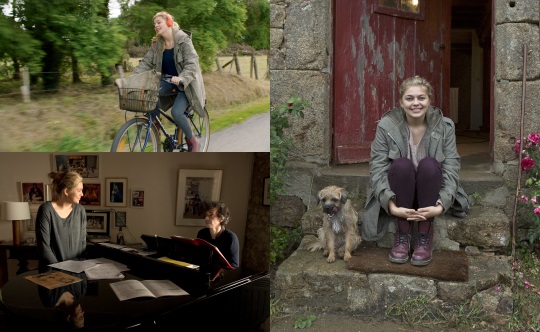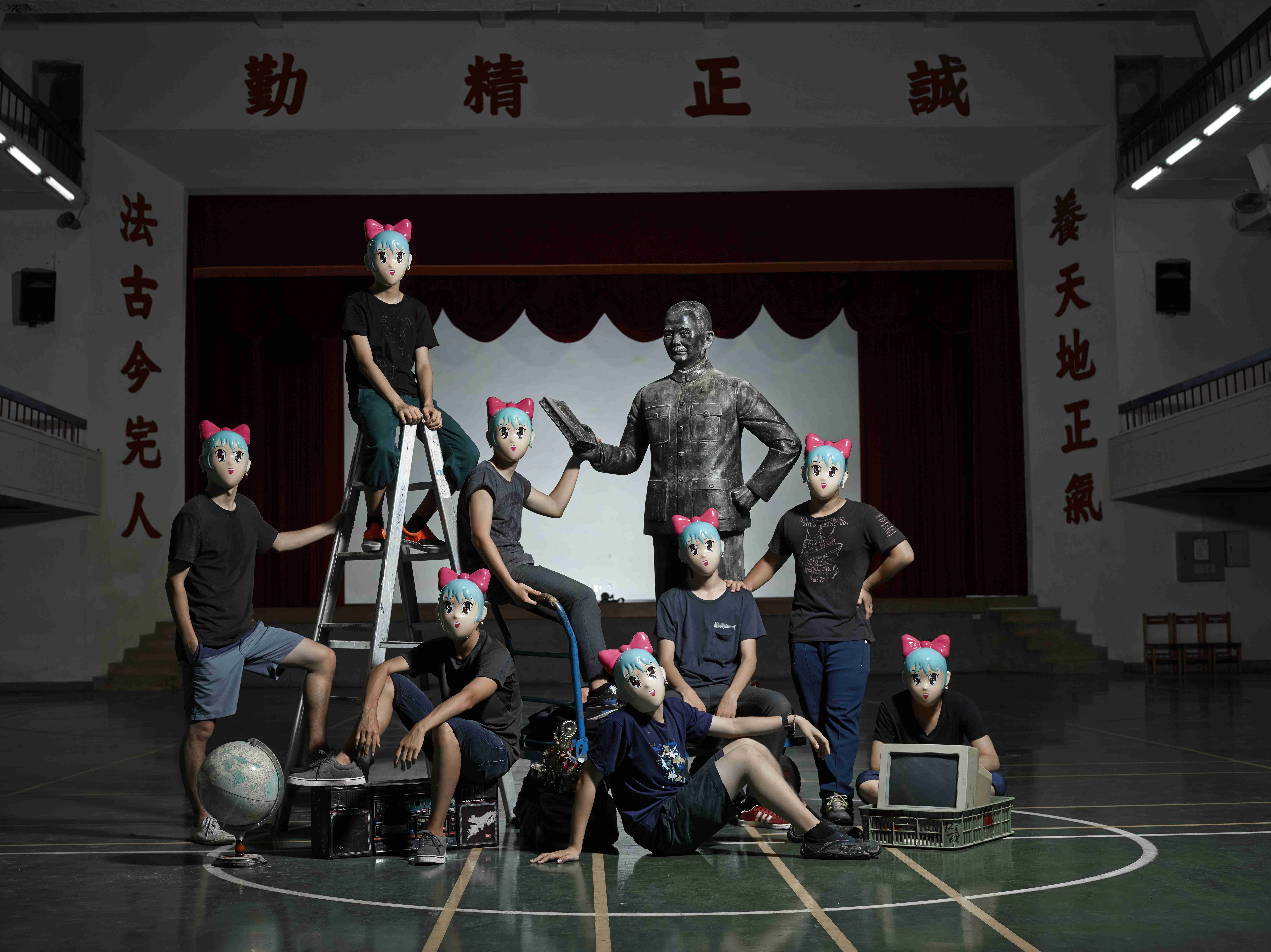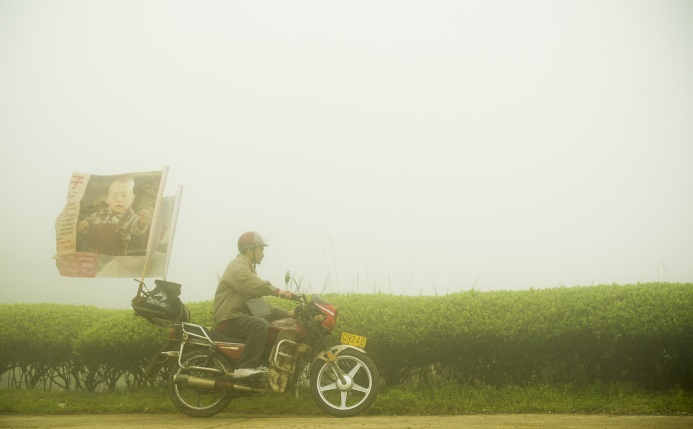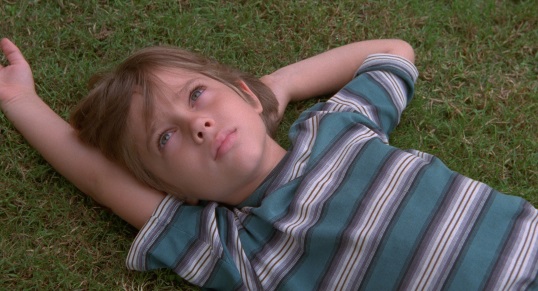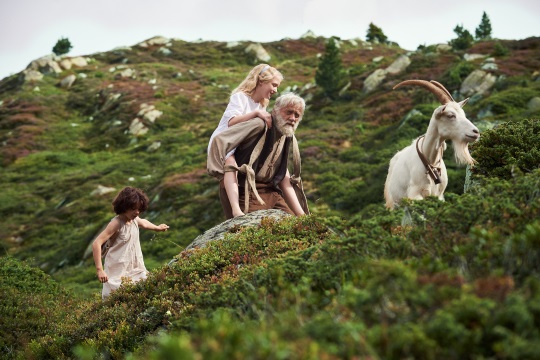La Famille Bélier Individual Conflict with Family Responsibilities
“La Famille Bélier” is a popular French film after “Intouchables”, directed by Eric La Tige (Éric Lartigau), won the 40th French Caesar Award (César Awards) of Most Promising Actress and Best movie, screenwriter, actor, actress, supporting actor five nominations. Anyi Mara (Louane Emera) came from competition of "France good voice" high-profile, famous and joins the big screen who debut playing the protagonist has a touching song Bona, shiny blockbuster show, swept plurality Rookie Award; more actress Karin Viard, actor Éric Elmosnino, and the French Caesar Award nomination for best supporting actor François Damiens . This is humorous yet heartwarming comedy French warmth rare in recent years.
Unusual Family Film The producers, Philippe Rousselet and Eric Jehelmann, sent Éric Lartigau the screenplay. At the time, he was just beginning to write a project… about families. This is a theme that clearly pursues him… or that he pursued. Even though he was not totally available, he immediately said a categorical "yes" to THE BELIER FAMILY. This story touched director deeply. He could perhaps now build up a whole theory to explain what he liked and why he chose to make this film rather than the other one, but the truth is that his decision was totally impulsive. No doubt family is a universal subject that, moreover, has already been dealt with a thousand times in movies. He was attracted to and interested by the fact that everything is so close to the surface... all primary and animal emotions… He loves that. Laughter and tears. The injustice of one confronting the truth of the other. As a director, he said he didn't like to have to choose between all these different feelings. He loves comedy as much as drama and he loves to blend the two more than anything, as in life, when a dramatic situation is born of a comical or absurd situation… The original story was by Victoria Bedos. After agreeing to the project, on rereading it and in agreement with her and her co-screenwriter Stanislas Carré de Malberg, I felt the need to make the story my own… Alone at first, then with Thomas Bidegain… but everything was already there. Éric Lartigau just needed to make this story himself. Victoria Bedos often talks about her "little music" in relation to her writing. He had to find himself, as He now needed to set it to images. Many reasons urged his interesting in this story. Firstly, the theme of departure… Separation experienced as a heart-breaking thing. Can we leave one another gently? Can we love each other strongly without it becoming all-consuming? How can we make sure that each partner has his or her own freedom? How do we view the change in others? And loving each other strongly doesn't mean we like each other. In a family, who builds things up, who drives things, who stifles? Where do we place the cursor in these choices? There's fear too, the fear that blocks us, the fear that freezes us… The end of adolescence is a key moment in life: it can be terrifying to view this adult world from a distance into which we are going to be cast without a net: even the body isn't quite ready – it's a vibrant and wavering age that moves me. Relating the first hesitant steps of this girl whose horizon broadens all of a sudden fascinated me. Paula's journey, before finding her path and coming to terms with what lies ahead for her as her destiny, is a journey we all take. It will be that of my children and my grandchildren. Finding one's place. Becoming oneself. Must one necessarily betray one's family a little, "kill the father "as they say? Actually, it's a fine thing to kill a father when, all of a sudden, he understands that all this violence is in fact a rebirth. As parents, we try to accompany these "fragile" beings as best we can.
"Encounter "with Sign Language… For Éric Lartigau, this is a new language that cohabits with our country's language. We have all come into contact with the deaf or hard of hearing, but we don't feel empowered to approach them. As a child, he had the experience of my second cousin Mireille Descheneaux - whom I mention here because their community is very small compared to those of us with ears. He could see the difficulty she had in communicating with others. Fortunately, she had a very close, very tightknit family. We never really wondered how we were different. It was easier as children, more radical, especially as we played. Actually, Alexeï Coïca, the deaf teacher who taught the actors FSL (French Sign Language) used a similar approach: when he worked with them, he used a lot of games. It was a brilliant move to make teaching joyful. People learn faster and it helps to improve memory. What amused director about the story is that we end up wondering where normality lies. We know full well that it's other people's gazes that determine what is normal and what isn't: we have a talent for imprisoning ourselves in preconceived ideas and a certain penchant for following the wrong path. In working on this project, Éric Lartigau realized that deaf people do not have the same concept of relations with others: they are very forthright and if something does not suit them, they don't beat about the bush. They get straight to the point and, at times, it can be pretty shocking. Those who exclude and those excluded need to assert where they belong. The herd instinct touches us all, it's a flaw that we all share.
Individual Conflict with Family Responsibilities We don't know if she really wants to lead a different life, we don't even know if this is an issue for her. She follows a very frantic rhythm until she discovers her voice… and the perspectives that this gift offers her. Her music teacher opens the door for her but would she have found it or even chosen it on her own? Actually, it's more her parents who want her to follow the road that they have marked out for her. This is an interesting aspect of the story: it's as if life were choosing for her. Will she be worthy of her "destiny"? Will she be able to seize the opportunity and the change that is offered to her through Thomasson? I like life when it upsets us, surprises us and leads us off on unforeseen paths, and I like to see Paula struggle, then surrender and gradually enter what will be her life, far from what was planned for her. In every life, an encounter is decisive. Louane shows this non-choice brilliantly. But life is ironic: Paula could have been gifted for dancing, math or woodwork - but life has given her voice. Imagine the frustration for her and her parents not to be able to share that. After all, she can give to others what she cannot give to them! That's a terrible interdiction. But it was not deliberate…
"The Voice" Caesar Award Best Actor & Actress "The Voice" to take a look at two singers. Éric Lartigau though, that’s where he discovered Louane and fell for her! What he instantly liked about her was her slender fragility, as if she were going to go off the rails at the end of the first verse. With her, you have the feeling that she is walking a tightrope and yet she is there, present, grounded and strong at the same time. She sees it through. She becomes a sentence without an end. That's Louane. I like her grace along with her clumsiness, that of adolescence. She is very mature and has a strong awareness of the moment - she isn't calculating because she has no idea of what she gives off. Éric Lartigau hopes that she will keep that freshness as long as possible. There are some wonderful deaf actors who could have played Paula's parents but I had wanted to work with Karin Viard and Françoise Damiens for a long time and director transposed them to this story as soon as he read the screenplay. It wasn't a matter of making a documentary on the deaf. And the specificity of actors lies in their ability to blend into a character, to create a personality, a singularity, a trade, a bearing. Composing in this way is an intrinsic part of their work. He immediately thought of Karin Viard because he wanted Gigi to be an exuberant character, full of fantasy, but also authoritarian and intrusive. She is capable of every excess, something I find particularly seductive. And, besides, the film needed a woman who would be credible selling cheese, someone who would not be sophisticated and who has a provincial air about her. In any case, that's what he saw in her and what allows her, in my opinion, to play ordinary characters too. Karin has that ghost within her. She's a powerhouse. François Damiens has a crazy talent for being and not being. He's a guy full of energy and life. He lives for the moment. With ease at times and none at others, but he fools you. Because, first and foremost, he is an amazingly generous person. He is full of integrity. That's vibrant. Eric Elmosnino is intense, devoted to his art. He is someone with incredible power who likes to discover and listen. Take things apart and do the exact opposite with just as much conviction. He has no preconceived ideas. He is free. That's magical. All three of them are very professional actors with extremely different ways of working: each one has his or her own tone and reflects a very different form of energy, yet I felt that together they would compose a lively tableau with a great deal of relief and emotion around Paula.
Synopsis In the Bélier family, everyone is deaf except Paula, 16. She is an essential interpreter for her parents on a daily level, particularly where the running of the family farm is concerned. One day, urged on by her music teacher who has discovered her talent for singing, she decides to prepare for the Radio France Choir audition. A life choice that will distance her from her family and force her to grow up.
La Famille Bélier Director: Éric Lartigau Cast: Karin Viard, François Damiens, Éric Elmosnino, Louane Emera Genre: Drama/Musical Duration: 105 mins Category: IIA Trailer: https://youtu.be/KGjoniBw46U
|
|





